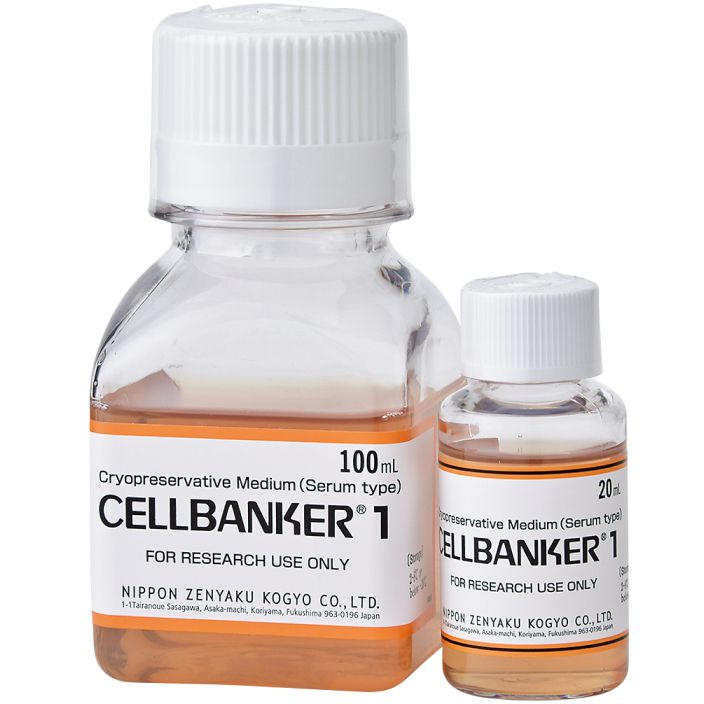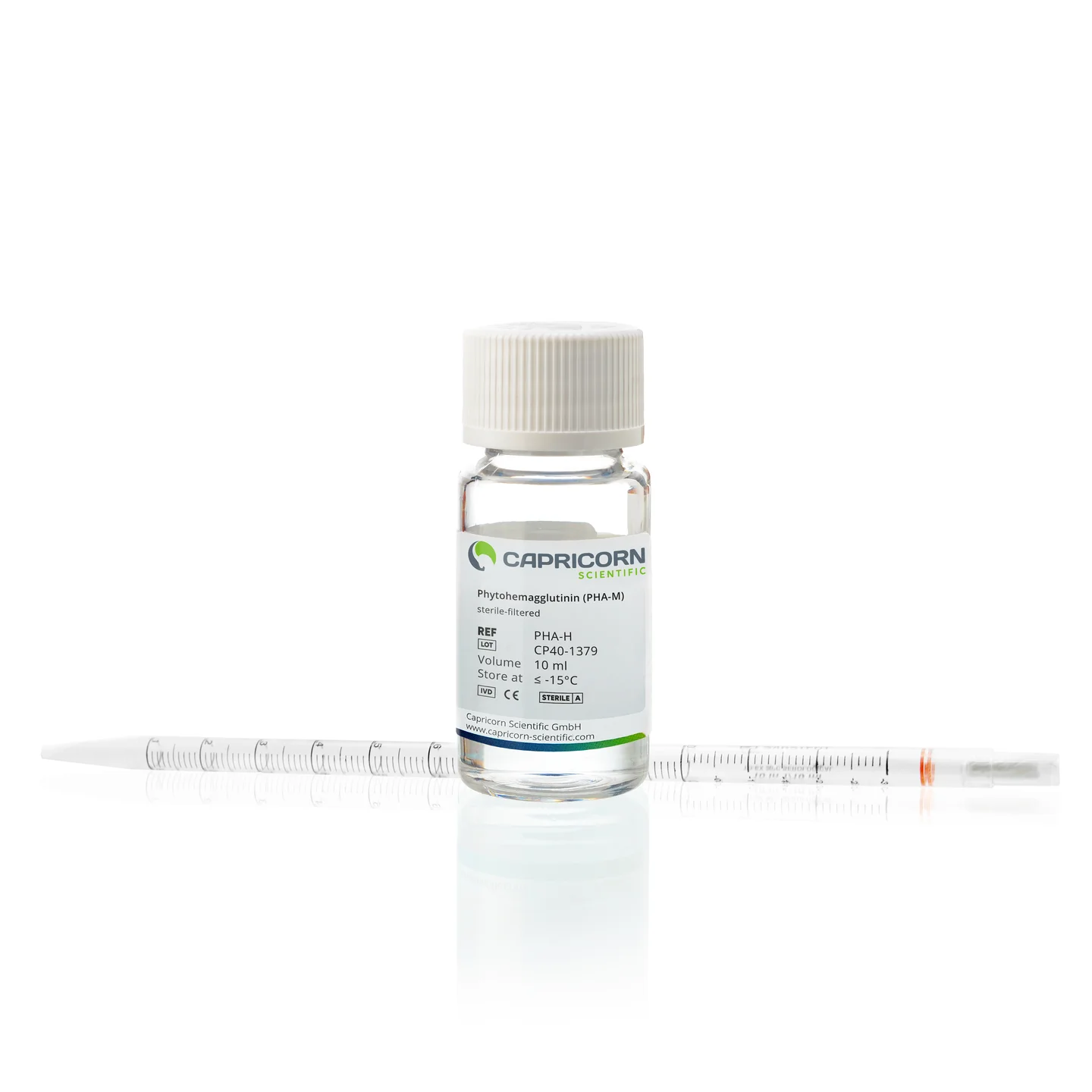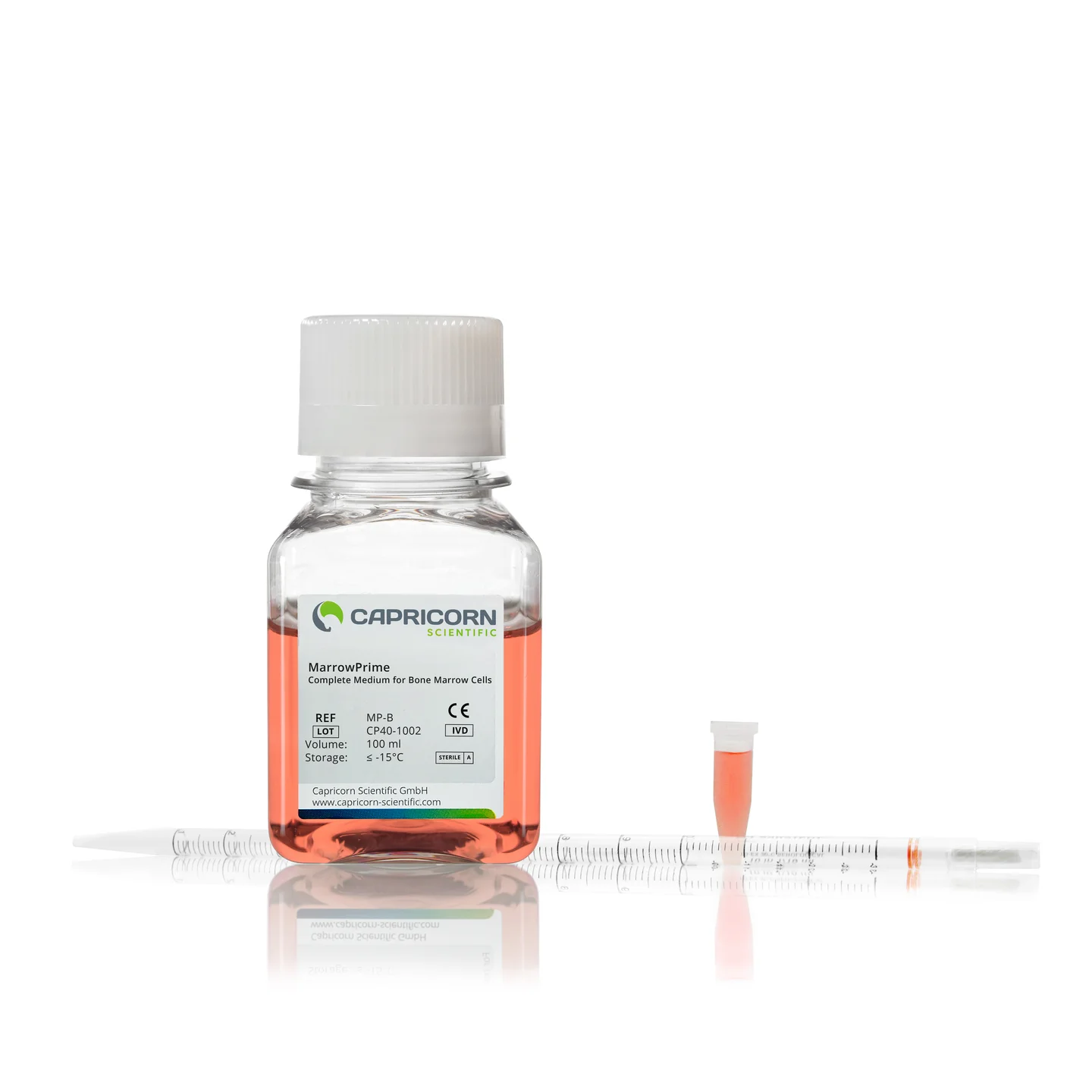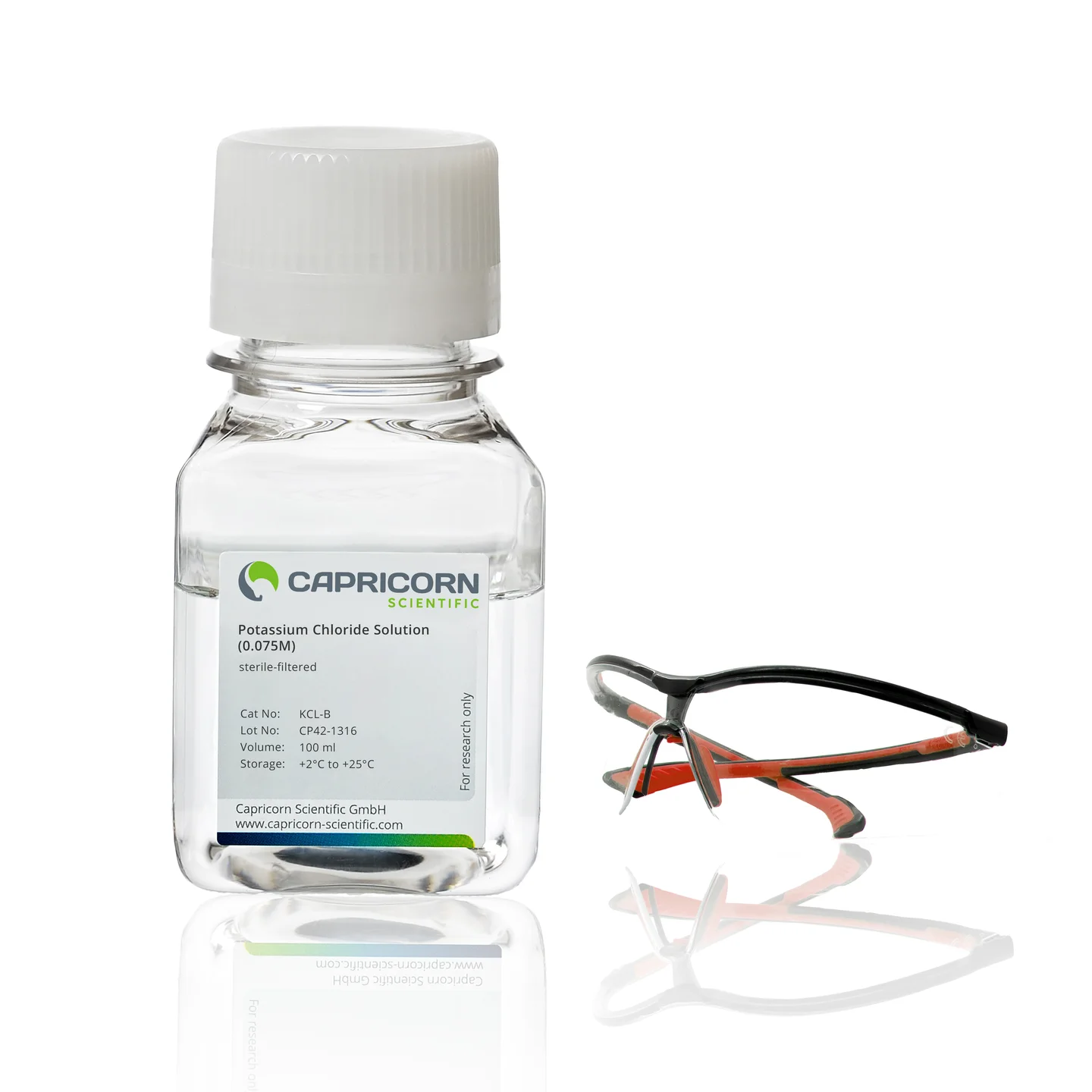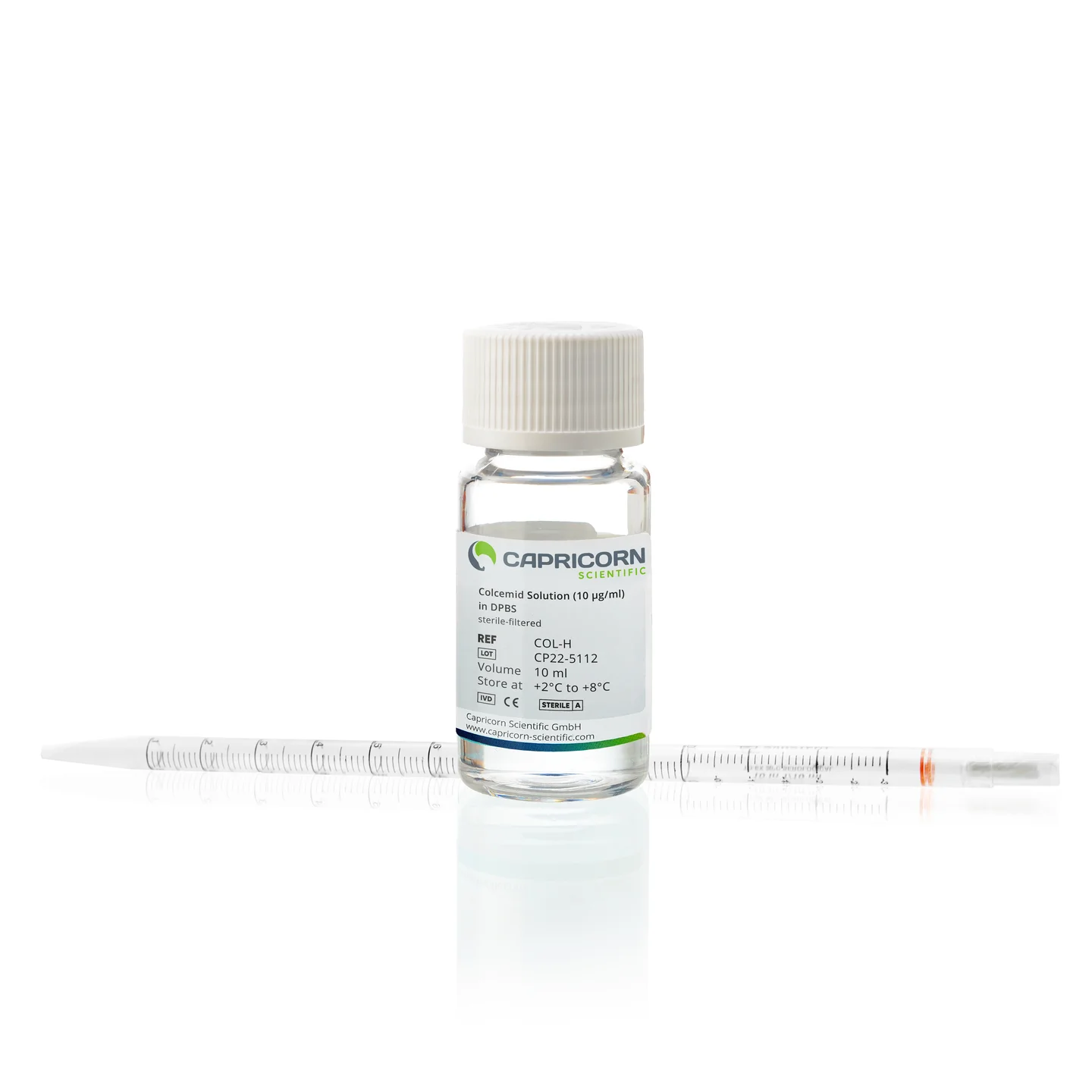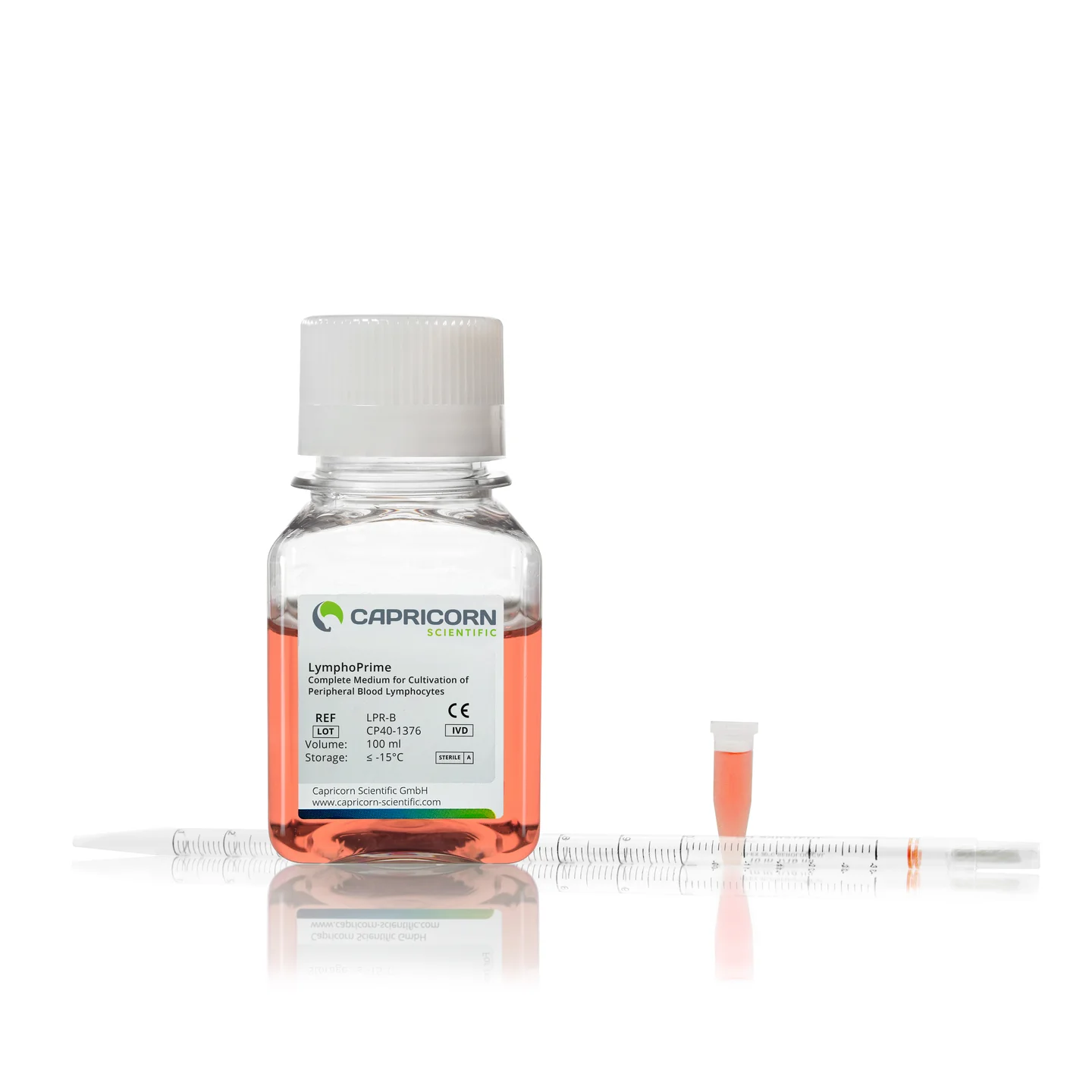CELLBANKER® 1 is a ready-to-use cell cryopreservation medium with serum containing formulation for broad spectrum of mammalian cell cultures. The unique formulation allows for stable cryopreservation and high viability after freeze-thaw procedure, even for sensitive cell lines.
PRODUCT INTRODUCTION
Advantages: Safe and Save!
Safe: high cell viability
Save: complete formulation, no further preparation, direct freezing at -80℃, no programmable freezer required, etc.
Comparative Analysis of Cellbanker® 1 vs. conventional cell cryopreservation method:
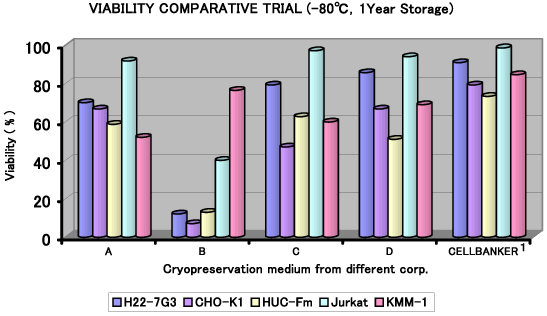
Storage and Stability: Store at 2 to 8 or below -20 degrees Celsius. In unopened condition and under storage temperatures (2-8℃), the product will be stable for 3 years after the date of manufacture.
Specifications
- Protocol:
- A. Freezing
- For optimum results, cells for cryopreservation should be in log phase of growth. Similar or standard freezing protocols may be substituted.
-
- Examine and make sure the cell culture free of contamination, in healthy situation and proper confluency, etc.
- Perform a cell count to determine the viability of cells.
- Gently pellet the cells centrifugation (3 - 5 minutes at 1,000~2,000rpm, 4℃). Remove the supernatant using a aspirator.
- Gently suspend the cells with CELLBANKER cryopreservation medium (1 ml for 5×105 - 5×106 cells).
- Dispense the cell suspension in 1ml aliquots to cryopreservation vials that have been labeled with the cell line name, cell concentration, passage date and other essential information.
- Place the vials directly in a -80℃ for storage. If necessary, transfer the frozen vials to a liquid nitrogen storage tank after the vials have been frozen for at least 24 hours.
- IMPORTANT: Optimum protocol may change with the cell types.

- B. Thawing
-
- Remove the frozen cell from storage and quickly thaw in a 37 ℃ shaking waterbath.
- Immediately dilute and gently mix each 1ml of cells with 10ml of complete cell culture medium.
- Gently pellet the cells centrifugation (3-5 minutes at 1,000 - 2,000rpm, 4℃). Remove the supernatant aspirator.
- Gently suspend the cells with appropriate volume of complete cell culture medium. And plate in a culture flask.
- Continue the further culture procedures according to standard protocols.
Application
| Cell type | Description |
|---|---|
| 293 | Sheared human Ad5 DNA-transformed cell line. |
| 293T | Human cell line expressing SV40 large T antigen |
| 32D | Murine myeloid cell |
| 3LL | Murine Lewis lung cancer cell |
| A10 | Thoracic aortic smooth muscle of an embryonic rat |
| A2781 | Glioblastoma cell |
| Ac2F | Rat liver cell |
| AtT20 | Murine anterior pituitary cell |
| Ba/F3 | Murine Pro-B cell |
| BHK-21 | Ba Hamster renal fibroblast cell |
| C2C12 | Mouse myoblast cell |
| C3H10T1/2 | Murine embryonic fibroblast cell |
| Caco-2 | Human colonic adenocarcinoma cell |
| CHL/1U | Neonatal Chinese Hamster Lung cell |
| CHO | Chinese Hamster Ovary cell |
| CHO-K1 | Chinese Hamster Ovary cell |
| Colo203 | Human colonic adenocarcinoma cell |
| COS1 | African green monkey kidney cell |
| COS7 | African green monkey kidney cell |
| CTLL-2 | Murine T-cell |
| DLP-1 | Human colonic adenocarcinoma cell |
| DT40 | Chicken B lymphocyte cell |
| DU145 | Human prostate carcinoma cell |
| EBV transformed B cell | |
| EJ-1 | Human bladder carcinoma |
| ELM-D | Murine erythroblastic leukemia cell |
| HeLa cell | Human Uterine Cervical Carcinoma Cell |
| Hep3B | Human hepatoma cell |
| Hepal-6 | Murine hepatoma cell |
| Hepatocyte | |
| HepG2 | Hepatocellular carcinoma cell |
| HL-60 | Human promyelocytic leukemia cell |
| HT-2 | Murine cell |
| Huh-7 | Human hepatocarcinoma cell |
| Jurkat | Human T-cell line |
| K-562 | Human Caucasian Chronic myelogenous leukaemia cell |
| Kato-III | Human stomach carcinoma |
| Keratinocyte | |
| KM12-LX | Human Caucasian Chronic myelogenous leukaemia cell |
| L5178Y | Murine lymphoma cell |
| L929 | Murine fibroblast cell |
| LM | Murine fibroblast cell |
| LNCap | Human prostate adenocarcinoma cell |
| Lymphocyte | |
| MCF-7 | Human metastatic mammary carcinoma cell |
| MDCK | Madin-Dar canine kidney cell |
| Microvascular Endothelial Cell | |
| Molt-4 | Human T-cell |
| NB-1/GOTO | Human neuroblastoma |
| NCI-H441 | Human lung adenocarcinoma epithelial cell |
| NIH3T3 | Mouse embryonic fibroblast cell |
| P388 | Murine leukimia cell |
| P3/x63-Ag8.U1 | Murine myeloma cell |
| PC12 | Rat pheochromocytoma cell |
| Periodontal ligament fibroblast cell | |
| Periodontal ligament membrane fibroblast cell | |
| Raji | Human B-cell line |
| RAW264.7 | Murine Macrophage cell |
| sf9 | Insect cell |
| SK-N-MC | Neuroepithelioma cell |
| SN12C | Renal carcinoma cell Subclone: PM6,Clone8, MM3 |
| Stem cell | |
| Stomach carcinoma cell | |
| THle3 | Human liver cell |
| T24 | Human bladder carcinoma |
| Vero | African green monkey kidney epithelial cell |
| WEHI3B | Murine myeloid leukemia |
| WiDr | Human colon adenocarcinoma cell |
Typical experimental results
| Cells | Preservation period (year) |
Viability of cells (%) | |
|---|---|---|---|
| -80℃ | -196℃ | ||
| MOUSE | |||
| Hybridoma | 10 | 95 | 95 |
| Myeloma | 10 | 90 | 90 |
| L929 | 10 | 90 | 90 |
| FM3A | 5 | 90 | 90 |
| BALB/3T3 | 5 | 90 | 90 |
| M1 | 5 | 90 | 90 |
| YAC-1 | 5 | 90 | - |
| RAT | |||
| RLC-16 | 5 | 90 | 90 |
| NRK | 5 | 90 | 90 |
| PC-12 | 5 | 90 | - |
| HAMSTER | |||
| CHO | 5 | 90 | 90 |
| V79 | 5 | 90 | 90 |
| MONKEY | |||
| COS-1 | 5 | 90 | 90 |
| Vero | 5 | 90 | 90 |
| HUMAN | |||
| Kidney-derived tumor cell | 5 | 90 | 90 |
| EBV transformed cell | 5 | 90 | 90 |
| HEL-derived fibroblast | 5 | 90 | 90 |
| Melanoma | 5 | 90 | 90 |
| Caco-2 | 3 | 90 | - |
| C-5 | 5 | 90 | 90 |
| CEM | 5 | 90 | 90 |
| K562 | 10 | 90 | 90 |
| Jurkat | 10 | 90 | 90 |
| BALL-1 | 5 | 90 | 90 |
| HUC-Fm | 5 | 80 | 80 |
Order information
Package: 20 ml, 100 ml/bottle
Document
